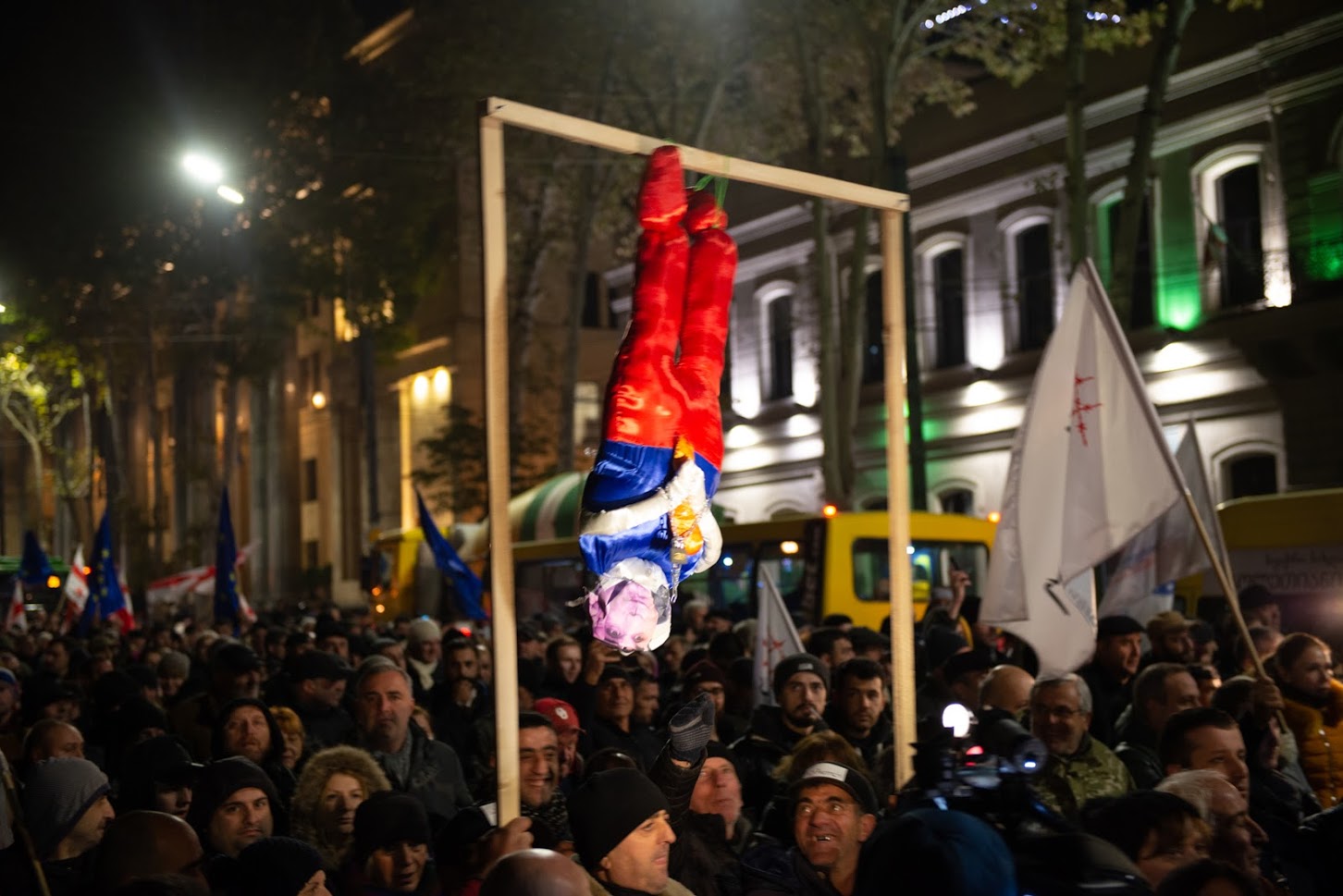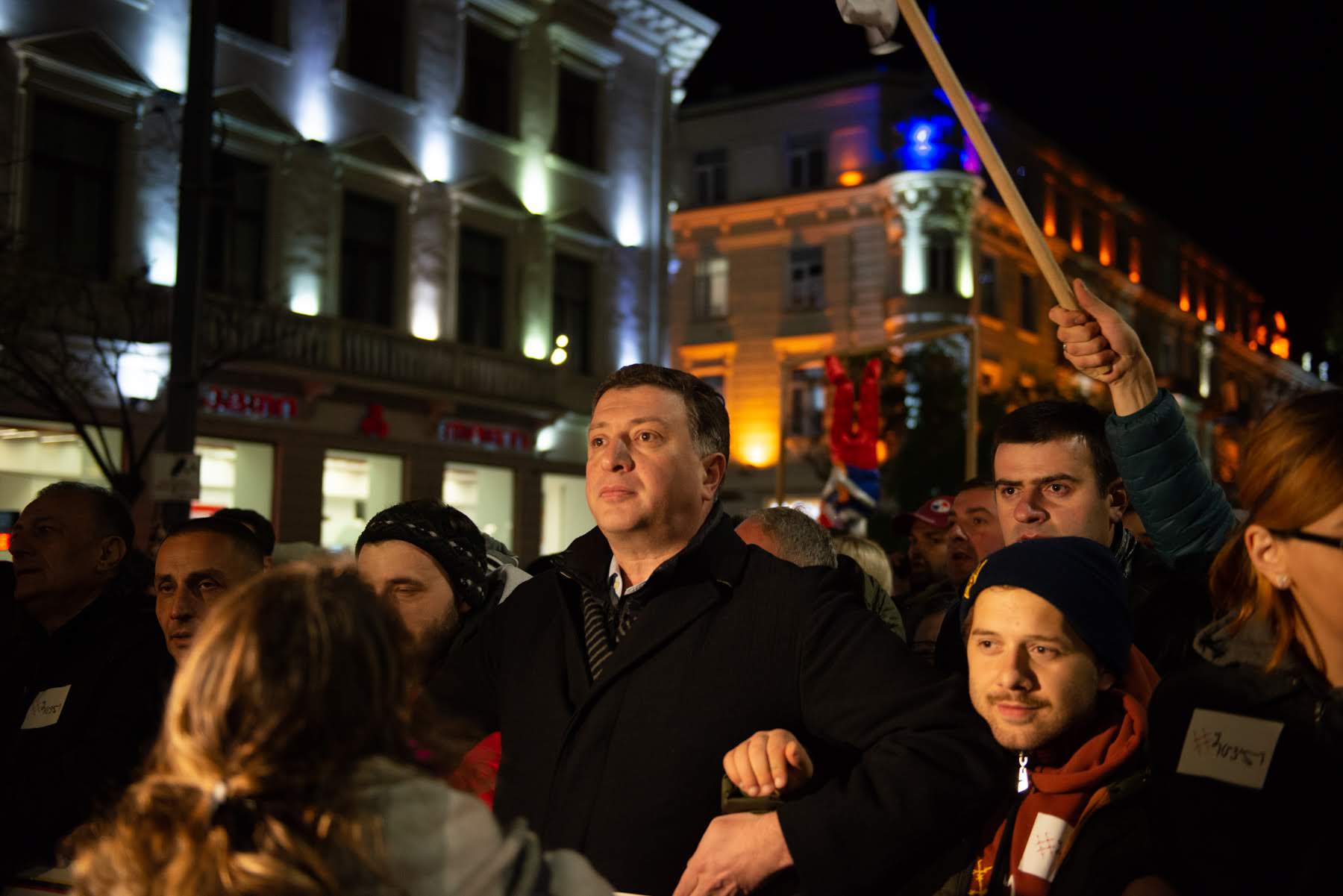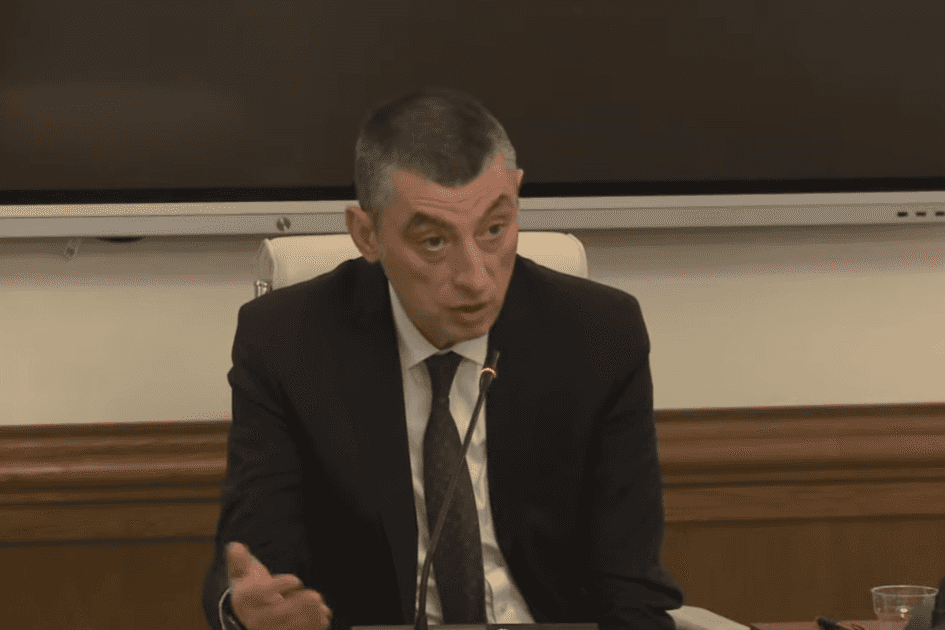Tbilisi protests again dispersed by water cannon as Georgian Dream mulls switch to fully majoritarian system


The authorities in Tbilisi have dispersed protesters blockading the Georgian Parliament for the second time in a week. As temperatures reached below zero in the early hours of Tuesday, riot police moved in deploying a water cannon against protesters.
Twenty-eight people were detained and several were injured; one person reportedly received a serious eye injury.
Protesters also complained that police officers confiscated wood that they intended to burn at the protest to keep themselves warm.
Protesters have been demonstrating outside parliament for almost two weeks demanding a transition to a fully proportional electoral system, something the ruling party had promised.
This was a key concession announced by Georgian Dream Chair Bidzina Ivanishvili following violent clashes between protesters and police in June.
[Read more on OC Media: 10 Georgian anti-government protesters jailed]
Proportional elections were already due to kick in for 2024’s election following 2017–2018 constitutional changes, however, on 14 November, parliament failed to adopt a bill to bring the transition forward to 2020 as promised.
On Monday, Georgian Dream floated the possibility of amending the constitution so that 2024 parliamentary elections would not be held under a fully-proportional system.
Georgian Dream General Secretary Kakha Kaladze said the party was considering an initiative by several of the party’s MPs to entirely drop the proportional element from the current mixed system, with all MPs being elected from majoritarian single-member constituencies.
Opposition parties widely condemned the move labelling it ‘political fraud’.
Gigi Ugulava, one of the leaders of the European Georgia Party said that if 2020 parliamentary elections were not held with a fully-proportional system they would disrupt the elections.

In his statement on 25 November, Kaladze, who also serves as Mayor of Tbilisi, said the government planned to hold a referendum on electoral reforms during either the 2020 parliamentary elections or the 2021 local government elections.
‘As you know, there’s a group of MPs among the parliamentary majority who have an initiative to switch to a fully majoritarian system’, Kaladze said, adding that Georgian Dream would no longer consider amendments to the electoral system for the 2020 parliamentary elections.
‘We take their general initiative into consideration’, he added. ‘We agreed that they will consider working in this direction under one condition — that there will be a public vote on electoral reforms at either 2020 parliamentary elections or 2021 local elections.’
He also announced that Georgian Dream would not field candidates in majoritarian districts where ‘an opposition candidate or an independent candidate, except for United National Movement and their two main wings or add-ons, have a real chance of winning’.
As a result, Kaladze said, parliament would be more diverse.
Opposition leader Davit Usupashvili, chair of the Development Movement and a former ally of Georgian Dream, said that Georgian Dream labelled anyone who did not agree with them as supporters of the formerly ruling United National Movement Party, and as a result, this initiative should be considered nothing more than ‘a farce’.
A U-turn on electoral reforms
After Kaladze’s briefing, one of the three majoritarian MPs who voted against the electoral reform bill earlier in November, Dimitri Khundadze, said that the 2020 elections would be held under the current mixed majoritarian-proportional system.
He said that he and several other Georgian Dream MPs would initiate a bill to switch to a fully majoritarian system following this.
The idea of holding a referendum on the electoral system was first voiced by Georgian Dream MP Akaki Zoidze. Though, he was referring to 2020 elections, not the ones in 2024.
The bill which Georgian Dream MPs failed to pass on 14 November to switch to a proportional system received 101 votes for and 3 against, falling short of the 113 votes needed to pass. Thirty-seven MPs abstained from the vote, though they did attend the parliamentary session.
Twelve MPs left Georgian Dream in protest at the party’s U-turn, including two deputy speakers and the chairs of the EU integration, foreign affairs, and education committees.
Three of the abstaining MPs were promoted on Monday as chairs of different parliamentary committees.
According to Netgazeti, the government spent ₾60,000 ($20,000) on public consultations on the switch to a fully-proportional system before the ruling party abandoned the initiative.








